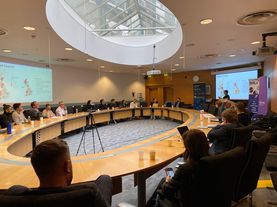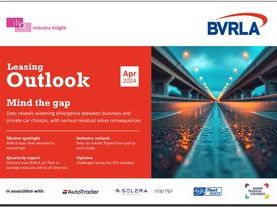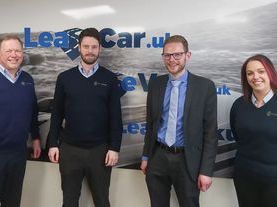Introducing electric car club fleets, setting up new integrated mobility platforms or helping businesses to roll-out plug in cars and vans, BVRLA members are driving the uptake of new mobility models.
As buyers of nearly 50% of all new cars, vans and trucks sold each year, the vehicle rental and leasing industry is already taking advantage of the latest electric, connected and autonomous technology to help make road transport cleaner, safer and less congested.
The BVRLA and its members are already engaging with local and national policymakers to set out the role they can play in delivering the benefits promised by new mobility technologies and businesses models. This week the association shared these messages in its submission to the Department for Transport’s Future of Mobility call for evidence.
In it, the BVRLA asked the Government to provide more guidance and support to cities around the UK that are trying to get to grips with the arrival of new and disruptive forms of mobility.
It urged local and national policymakers to collaborate in creating a consistent and strategic vision for the way they want new mobility models like bike sharing, car sharing and ride hailing to work alongside public transport in urban areas. The association also called for national Government to help local authorities tackle any planning and infrastructure issues holding back the rapid roll-out of EV charging infrastructure.
Elsewhere in its response, the BVRLA went on to highlight its concerns that data protection fears and a lack of regulation around access to vehicle and driver data were already stifling innovation and could lead to some mobility providers gaining an unfair competitive advantage.
“Vehicle electrification, connectivity and data are disrupting traditional transport business models and creating huge opportunities for improving urban transport,” said BVRLA Chief Executive, Gerry Keaney.
“The arrival of new on-demand transport providers like Uber or digital Mobility as a Service (MaaS) platforms that integrate lots of transport modes into an app have the potential to dramatically change the way city dwellers travel in a very short space of time.
“Policymakers need to adjust their plans. Air quality concerns mean that they need fewer cars, vans and trucks in cities, but that doesn’t mean that these modes can be ignored when it comes to developing strategies and visions for future urban transport,” said BVRLA Chief Executive, Gerry Keaney.
“The pay-as-you-go alternative to traditional vehicle ownership that is offered by BVRLA members will be a vital part of delivering this transition. We look forward to working with policymakers in reducing congestion while delivering safer, cleaner and more accessible transport for UK cities.”





